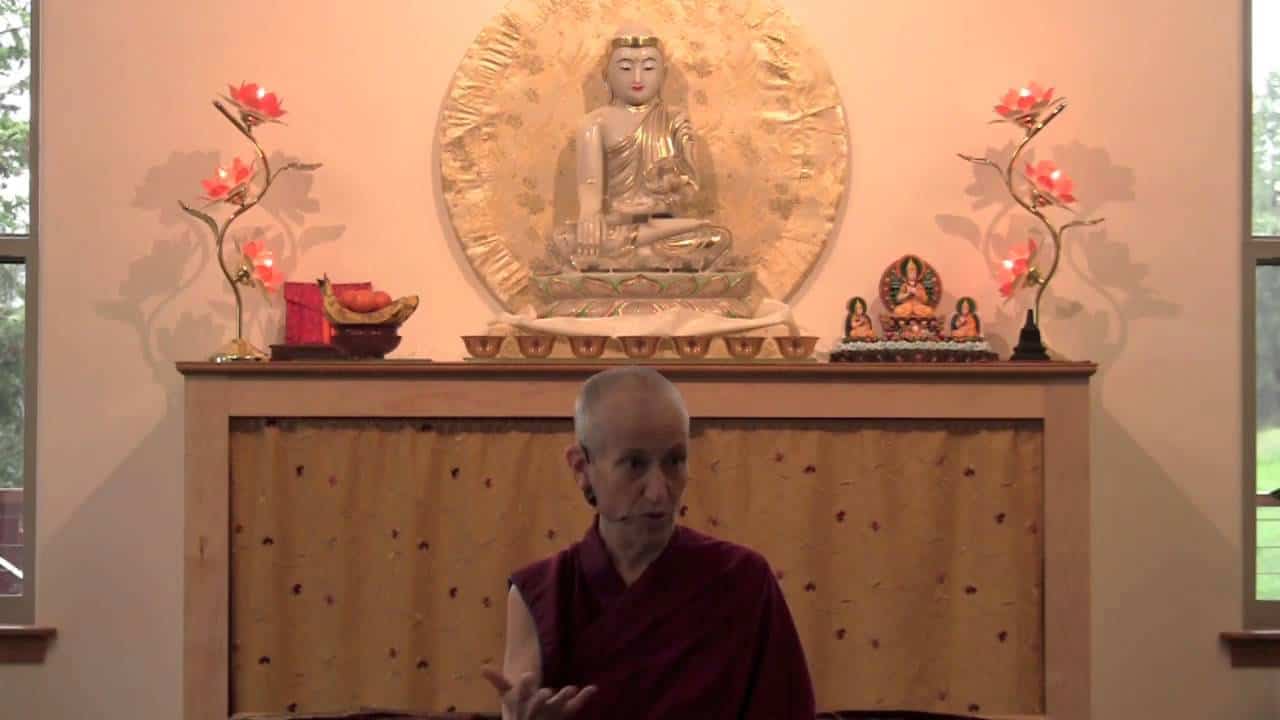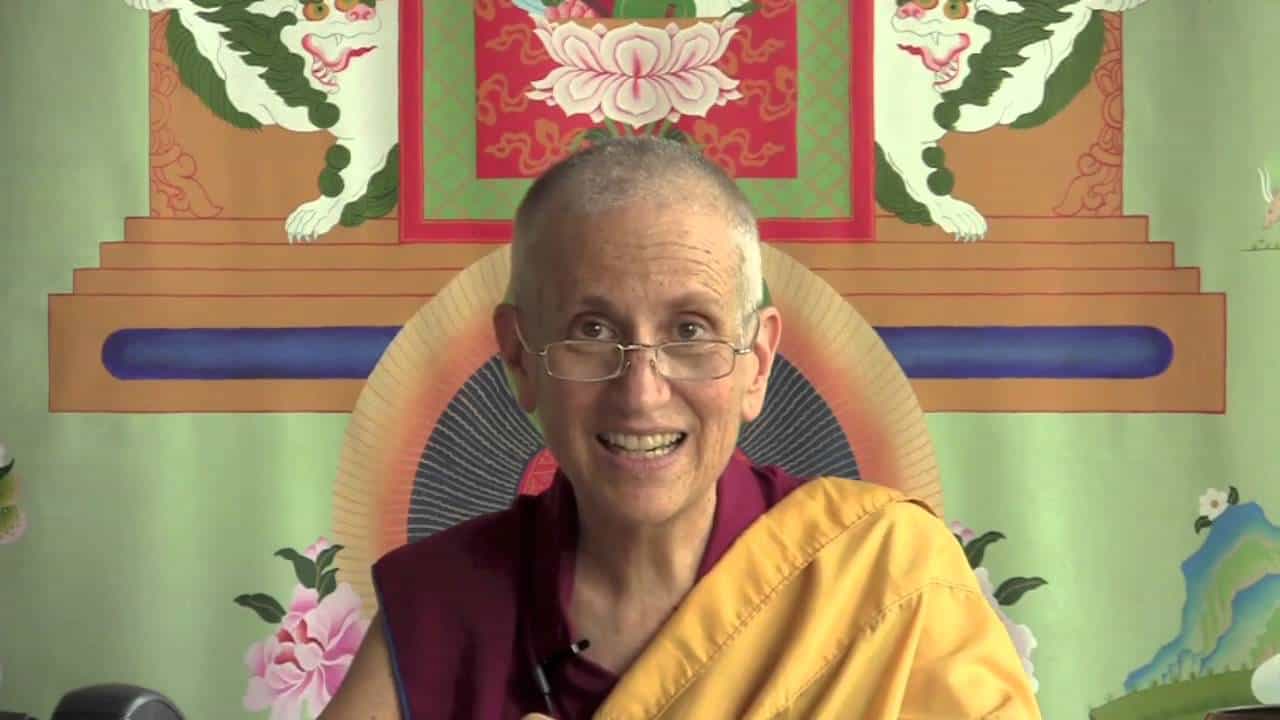Verse 99: The magical ritual
Part of a series of talks on Gems of Wisdom, a poem by the Seventh Dalai Lama.
- Rituals and spirit interference
- Karma and creating the causes for happiness or suffering
- Importance of keeping good ethical conduct
Gems of Wisdom: Verse 99 (download)
What magical ritual destroys the most vicious of demons?
Self-discipline which tethers itself far from faults of body, speech, and mind.
In Tibetan culture when people have different problems they very often request pujas and different rituals to dispel demons or banish spirit interferences and things like that. They do this sometimes when people have physical illnesses, when they have mental illnesses definitely, they do this kind of thing. And they do a lot of “protector” kind of stuff in this way, too. But what His Holiness always says is if you don’t create good karma you can ring a lot of bells and beat a lot of drums, but nothing’s going to change. Except your hands getting tired.
So I think he’s talking here to the cultures where people like these kinds of magical rituals that seem to dispel an outside agent.
Surely I think there sometimes can be external beings causing interference, but using these kinds of things as the first resort is not really corresponding to the Buddhist worldview. Because in the Buddhist worldview we’re the ones who create our karma. And if we don’t create the karma, the whole world can try and harm us but they can’t do any harm. Whereas if we create the karma then definitely something is going to happens.
So that whole topic about karma is about ethical discipline, isn’t it? If we abandon helping others and we do a lot of negativities then we’re going to get the result of that. Whereas if we’re kind and we’re helpful, we get the result of that. So I think he’s, in some way, kind of making fun of just doing all these rituals which are like saying “I’m not responsible for my suffering.” “Who, me? I didn’t do anything!” Completely neglecting the fact of who knows what we did in our previous lives that we didn’t purify that is now ripening, and then blaming it on other people. you know, “I have problems because of this spirit and that and that….” So he’s saying if we want to have happy lives then we have to create the causes for it, and the way to do that is by keeping ethical discipline.
Ethical discipline refers, on the basic level, to abandoning the ten nonvirtues and creating the ten virtues. But it very often is defined in terms of taking different levels of precepts. And I think the reason for that is you can abandon some of the nonvirtues without having a strong intention to abandon them. And so that doesn’t create a lot of strong karma in your mind. Whereas somebody who’s taken precepts not to do something, then every moment that they’re not doing that they’re creating that good karma because of the intention that their precept embodies or demonstrates. So taking and keeping precepts is an incredibly good way to abandon harming others and create a lot of merit. Also because keeping precepts makes us much more mindful of the actions we want to do and the actions we don’t want to do, and it really increases our introspective awareness to pay attention to what our body, speech, and mind are doing.
So maybe if we hear somebody ringing bells and playing drums then we’ll say “Oh, they’re reminding themselves to keep good ethical conduct.” [laughter] And if they aren’t, we’ll go remind them, and quote this verse.
Venerable Thubten Chodron
Venerable Chodron emphasizes the practical application of Buddha’s teachings in our daily lives and is especially skilled at explaining them in ways easily understood and practiced by Westerners. She is well known for her warm, humorous, and lucid teachings. She was ordained as a Buddhist nun in 1977 by Kyabje Ling Rinpoche in Dharamsala, India, and in 1986 she received bhikshuni (full) ordination in Taiwan. Read her full bio.


